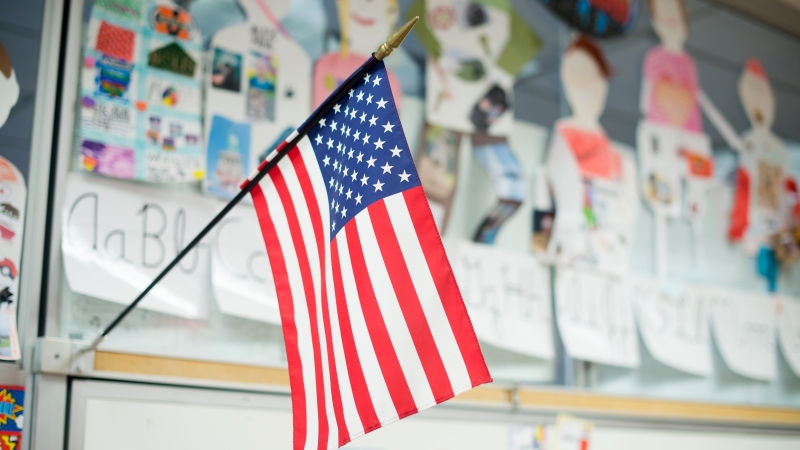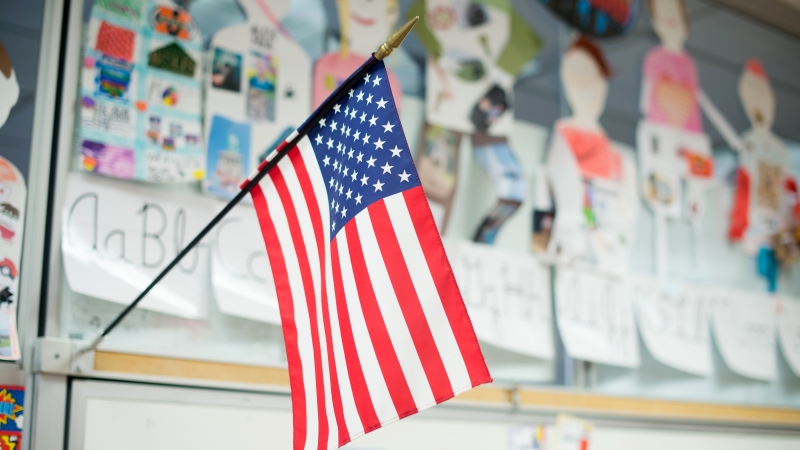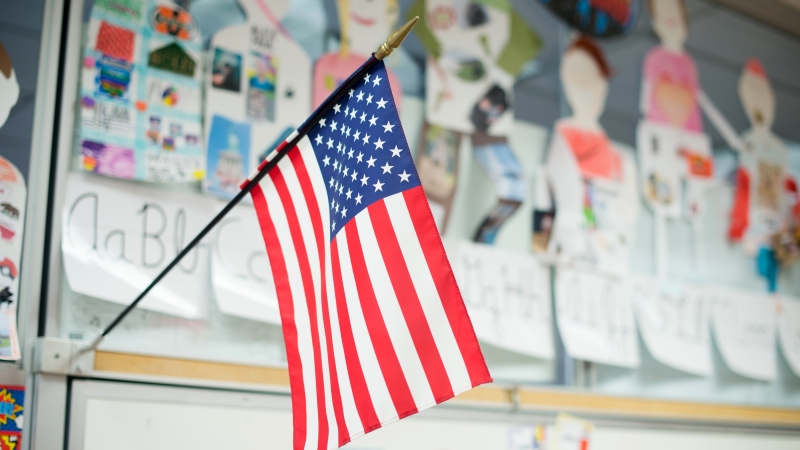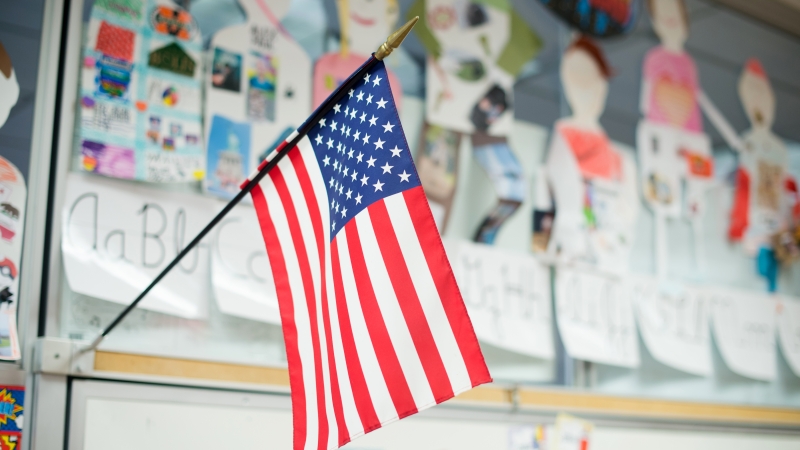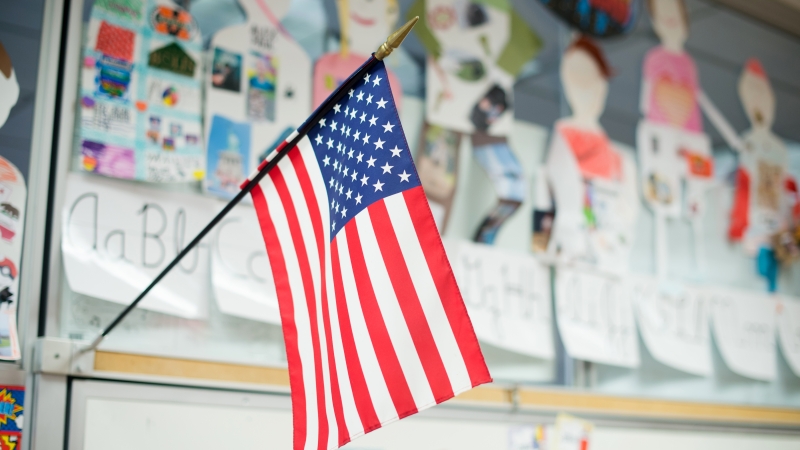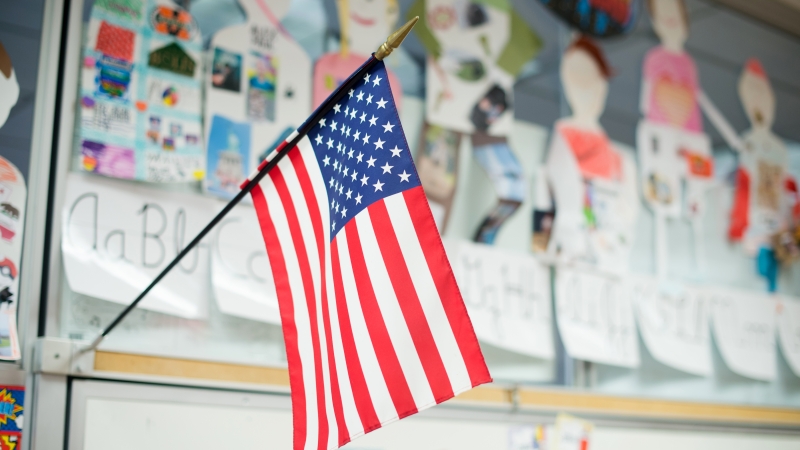
Virginia Board of Education Meeting Summary
3-21-2018/3-22-2018
Committee on School & Division Accountability
The Committee discussed proposed emergency amendments to the Regulations Establishing Standards for Accrediting Public Schools in Virginia (Emergency/NOIRA) and Guidelines on Exemplar School Recognition as Required by Recognition and Rewards for School and Division Accountability (8VAC20-131-410). Details on each are available in their respective business meeting agenda item, as discussed below.
Board Business Meeting
State Approved Textbooks for K-12 Mathematics
The Board approved 39 recommended K-12 mathematics textbooks that are aligned to the 2016 Mathematics Standards of Learning. Full implementation of the 2016 Mathematics Standards of Learning will occur during the 2018-2019 school year. The list of 39 approved mathematics textbooks can be found at: http://www.doe.virginia.gov/boe/meetings/2018/03-mar/item-a.docx.
State Approved Textbooks for K-12 History and Social Science
The Board approved 36 recommended history and social science textbooks that are aligned to the 2015 History and Social Science Standards of Learning. The list of 36 approved history and social science textbooks can be found at:
http://www.doe.virginia.gov/boe/meetings/2018/03-mar/item-b.docx
Emergency Amendments to the Regulations Establishing Standards for Accrediting Public Schools in Virginia (Emergency/NOIRA Stage) and Amendments to the Board’s Guidance on the use of Locally-Awarded Verified Credits
The Board waived first review and approved emergency amendments and revised guidance to the Regulations Establishing Standards for Accrediting Public Schools in Virginia (8VAC20-131) related to the awarding of locally-awarded verified credits.
The Board of Education approved comprehensive revisions to the Regulations Establishing Standards for the Accreditation of Public Schools in Virginia (SOA) which will become effective at the beginning of the 2018-2019 academic year. The revised regulations make changes to graduation requirements, including the availability of locally-awarded verified credits. Under the existing and revised requirements, locally-awarded verified credits provide students the opportunity to receive a verified credit in a course that they have passed, but failed the related end-of-course Standards of Learning test twice within a narrow margin. To receive a locally-awarded verified credit, the student must take the test twice, score between 375 and 399 on one of the attempts, and demonstrate achievement and mastery in the academic content through a local appeal process.
The Standards of Accreditation applicable to first-time ninth graders until the 2018-2019 academic year limit the award of locally-awarded verified credit to science and history/social science. The revised graduation requirements that will take effect for first-time ninth graders beginning in the 2018-2019 school year will allow a student to earn one locally-awarded verified credit among English, mathematics, science, or history/social science.
The implementation of these changes would mean that students attending high school at the same time would have different and unequal opportunities to earn verified credits. Current high school students that are struggling to pass either the English or mathematics end-of-course test will not have access to locally-awarded verified credits, while students that will enter the ninth grade beginning in the fall of 2018-2019 would.
The emergency regulations would extend the availability of a locally-awarded verified credit to English and mathematics for students who entered the ninth grade prior to the 2018-2019 school year in order to provide parity among these high school cohorts, and to help current students earn their diplomas for graduation in the spring of 2018. Further action on this item will be governed by the requirements of the Administrative Process Act, including approval by the Governor and the Virginia Attorney General’s office to certify that an “emergency” exists.
Board of Education’s Guidelines on Exemplar School Recognition as Required by Recognition and Rewards for School and Division Accountability (8VAC20-131-410)
The Board received for first review proposed guidelines for the recognition of exemplar schools and school divisions, as authorized under the Board’s Regulations Establishing the Standards for Accrediting Public Schools in Virginia (8VAC20-131).
The proposed guidelines establish the criteria for three types of recognition: (1) highest achievement, (2) continuous improvement, and (3) innovative practice.
Schools identified for highest achievement must be rated “Accredited” and demonstrate high levels of success across all of the school quality indicators, including achievement gaps among student groups. To be eligible for this award, schools must meet the state benchmark for reading, math, and science based on the student pass rate (i.e., not including growth or progress) and must have no more than a five percent gap (for schools with two student groups) or a ten percent gap (for schools with three or more student groups) between the lowest performing student group and all other students in the school. In addition, schools must meet the Level One benchmark for all other applicable school quality indicators.
Recognition for continuous improvement values schools that are demonstrating consistent, noteworthy improvement for each of three years. Schools that are rated “Accredited” or “Accredited with Conditions” and meet one of four criteria will be recognized: (1) a reduction in the rate of students failing state assessments in reading, math, and science; (2) a reduction in the rate of students failing state assessments in reading and math for two or more student groups; (3) a reduction in the chronic absenteeism rate; or (4) for schools with a graduating class, an increase in the Graduation and Completion Index and a decrease in the dropout rate.
Recognition for highest achievement and continuous improvement will be awarded annually based on current year data and accreditation status. Schools recognized for highest achievement will not be considered for recognition for continuous improvement in the same year.
Under the proposed criteria for innovative practice recognition, the Board can recognize schools, divisions, or school boards that implement an innovative practice for at least two years which demonstrates a significant impact on student success. The innovative practice must be a new or creative evidence-based alternative to existing instructional or administrative practices in one of the following priority areas: (1) closing achievement gaps; (2) developing an integrated STEM approach to learning; (3) building relationships with families; (4) enhancing technology infrastructure; (5) elevating the quality of the school environment; or (6) retaining quality teachers. Recognition for innovative practice will be awarded every two years.
Additional criteria related to measures of growth, the Board’s combined passing rates, and the Profile of a Graduate will be considered prior to final adoption in April.
Revisions to Student Eligibility Criteria for Expedited Retakes of Standards of Learning Tests
The Board waived first review and approved criteria for expedited retests of Standards of Learning (SOL) assessments, which became effective immediately upon Board approval.
The 2017 Standards of Accreditation authorize school divisions to provide expedited retakes of failed SOL tests for students who meet certain criteria. However, the criteria used to determine extenuating circumstances for these tests varied widely across school divisions. These revisions detail what constitutes an extenuating circumstance, including evidence that an SOL test score is not reflective of a student’s typical level of achievement, and details required documentation for such determination. Details can be found at: http://www.doe.virginia.gov/boe/meetings/2018/03-mar/item-f.docx
Proposed Regulations Governing the Designation of School Divisions of Innovation
The Board received for first review Proposed Regulations Governing the Designation of School Divisions of Innovation, to implement legislation as passed during the 2017 General Assembly Session allowing for the designation of School Divisions of Innovation (SDI).
To be eligible for designation, a local school board would submit a plan of innovation according to Board criteria as presented in these proposed regulations. The legislation defines “innovation” as a new or creative alternative to existing instructional or innovative practices or school structures that evidence-based practice suggests will be effective in improving student learning and educational performance.
The proposed regulations would establish the procedure and criteria for the designation of a SDI, and provide that the Superintendent of Public Instruction establish a format and timelines for local school boards to submit plans of innovation. The proposed regulations would prohibit any exemptions to teacher licensure regulations, special education regulations, and any other regulations that are mandated by state or federal law or are designed to promote health or safety. The regulations also include provisions to evaluate the performance of a SDI, including revocation in the event that performance expectations are not met.
The Board discussed possible changes to the criteria, limiting prohibited exemptions only to those that were specifically mandated by state or federal law or designed to promote health or safety, which will be considered prior to April’s scheduled final adoption.
Full details on the proposed criteria, application process, and evaluation can be found at: http://www.doe.virginia.gov/boe/meetings/2018/03-mar/item-g.docx
Division-Level Memorandum of Understanding for Greensville County Public Schools
The Board of Education waived first review and approved the division-level Memorandum of Understanding for Greensville County Public Schools, as required under the Standards of Quality (SOQ) for school divisions that fail to maintain Fully Accredited schools.
Repeal of the Regulations Governing Minimum Standards for the Accreditation of Child Day Programs Serving Children of Preschool-Age or Younger in Public Schools (8 VAC 20-590) and the Regulations Governing Minimum Standards for the Accreditation of Child Day Programs Serving School-Age Children Offered in Public Schools (8 VAC 20-600)
The Board waived first review and approved the repeal of the Regulations Governing Minimum Standards for the Accreditation of Child Day Programs Serving Children of Preschool-Age or Younger in Public Schools (8 VAC 20-590) and the Regulations Governing Minimum Standards for the Accreditation of Child Day Programs Serving School-Age Children Offered in Public Schools (8 VAC 20-600). The repeal is pursuant to legislation adopted during the 2016 General Assembly session (Senate Bill 467) which removed the Board of Education’s authority to regulate all child day programs in public schools and placed the authority with the Board of Social Services. Further action on this item will be governed by the requirements of the Administrative Process Act.
Revisions to the List of 2018-2019 Board of Education Approved Industry Certifications, Occupational Competency Assessments, and Professional Licenses
The Board received for first review revisions to the list of industry certification examinations, occupational competency assessments, and licenses that meet the requirements for graduation (effective for the students entering ninth grade prior to the 2018-2019 school year) and requirements for graduation (effective with the students who enter the ninth grade in the 2018-2019 school year).
The proposed changes would add 20 industry or trade association certification examinations, professional licenses, and occupational competency assessments as meeting the Board’s graduation requirements; would make technical changes in 14 others that are already on the approved list (including name changes or changes in issuing organization); and would propose deleting 3 from the existing Board-approved list. The sum of the changes would result in a list of 418 industry certification examinations, occupational competency assessments, and licenses. The complete list is available at: http://www.doe.virginia.gov/boe/meetings/2018/03-mar/item-j.docx
In the course of the Board’s discussion, they asked staff to consider whether the Virginia Communication and Literacy Assessment could be added as an additional substitute test.
REPORTS
The Board received reports on legislation considered during the 2018 General Assembly Session, multiple reports related to addressing the teacher shortage, as well as an update on Virginia’s ESSA plan.
